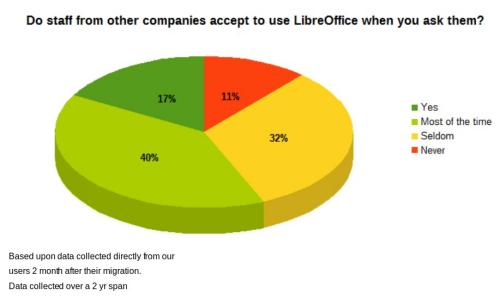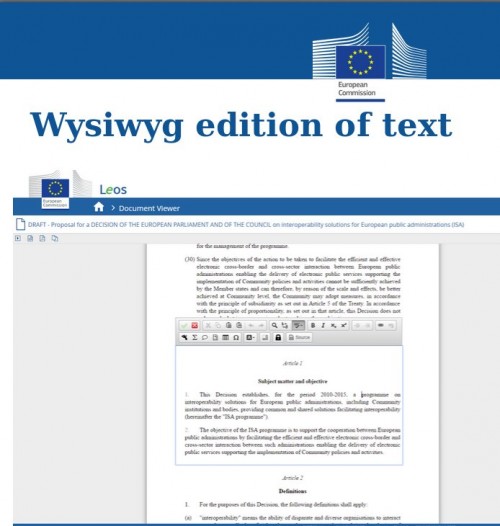The future of ODF, XML and office suites in Public Administrations
Last week I attended the Paris Open Source Summit, were I saw things as interesting and diverse as autonomous tractors, Open Source legal support and “degooglized Internet” visions. Please read that other post to know more. Here, I am only going to describe one other moment of POSS 2016, about two other arguments I care a lot about, and on which I wouldn’t mind working again, even if these days I am mostly busy with Digital DIY.
I was among the first to promote really open file formats like OpenDocument (ODF) as (much) more important than “free as in freedom” software. I said fifteen years ago that the right (if not the only) sensible way to promote free office suites is to only use, and accept, ODF files , even when it _seems _to go against the needs of disabled users, explaining here and many more times how and why **really **open digital standards are what matters most in Public Administrations. Later on, I had to put ODF advocacy on the back burner to work on Open Data and now Digital DIY, but I still care a lot about it. That’s why I took the occasion to spend some time in the ODF plugfest of POSS 2016. Unfortunately, I could only listen to these three talks:
- “ODF usage in Nantes Métropole (and what happens when communicating with other organisations)” by Eric Ficheux
- The LEOS document management system of the European Commission by Géraud Berton
- “eParlement & AT4AM” by Gianluigi Alari (EP)
but I fond them all very important. Do read those slides, please.

While everybody always speaks about Munich, Eric’s explained that Nantes Métropole is doing exactly what I was suggesting in 2001, that is (from slide 9) “Wherever we have control, we require ODF usage”. Oh, and Nantes also demands that all offers of sofware products or services to the city explicitly include the costs of ALL “accessories” that would be needed to use it.
In other words, if I got that part right, if you want Nantes to purchase, say, your document management system that’s only compatible with Microsoft Office, serving 1000 employees at 10K Euros, you must put in writing that that server costs 10K Euros, plus 1000 licenses of Microsoft Office, plus the 1000 licenses of Windows to run Office.
In that way, the city can easily evaluate the real costs of some choice. Unless, again, I misunderstood something, the results of these outrageous policies is that Nantes has never bought proprietary software since they came in force, and this did **not **turn that city into some radioactive wasteland. It really seems that your city too may dare follow that path.

The other two talks, that describe how the European Parliament and Commission manage writing amendments and, respectively, law proposals thanks to open XML formats and Web-based front-ends, may be even more important. Why? Because they may be real world examples of something I wrote in 2014 about Libre Office migrations, and the related training in Italy, namely:
- Libre or Open Office are all well and good, but may their moment be passed, at least in some contexts?
- …does in 2016 still make sense, for any Public Administration still burdened by proprietary desktop-based office suites, to migrate to any other software of the same kind, regardless of its license?
- isn’t it much better, at this point, to just leapfrog from proprietary office suites directly to (obviously Free/Open Source!) web-based systems?
- Lack of broadband, you say? Not a problem. A rural town with just a 56K connection to the Internet may still run systems like these on the local network inside their own offices
If I can help you with training, research or other work on those topics… just let me know, thanks.
Who writes this, why, and how to help
I am Marco Fioretti, tech writer and aspiring polymath doing human-digital research and popularization.
I do it because YOUR civil rights and the quality of YOUR life depend every year more on how software is used AROUND you.
To this end, I have already shared more than a million words on this blog, without any paywall or user tracking, and am sharing the next million through a newsletter, also without any paywall.
The more direct support I get, the more I can continue to inform for free parents, teachers, decision makers, and everybody else who should know more stuff like this. You can support me with paid subscriptions to my newsletter, donations via PayPal (mfioretti@nexaima.net) or LiberaPay, or in any of the other ways listed here.THANKS for your support!